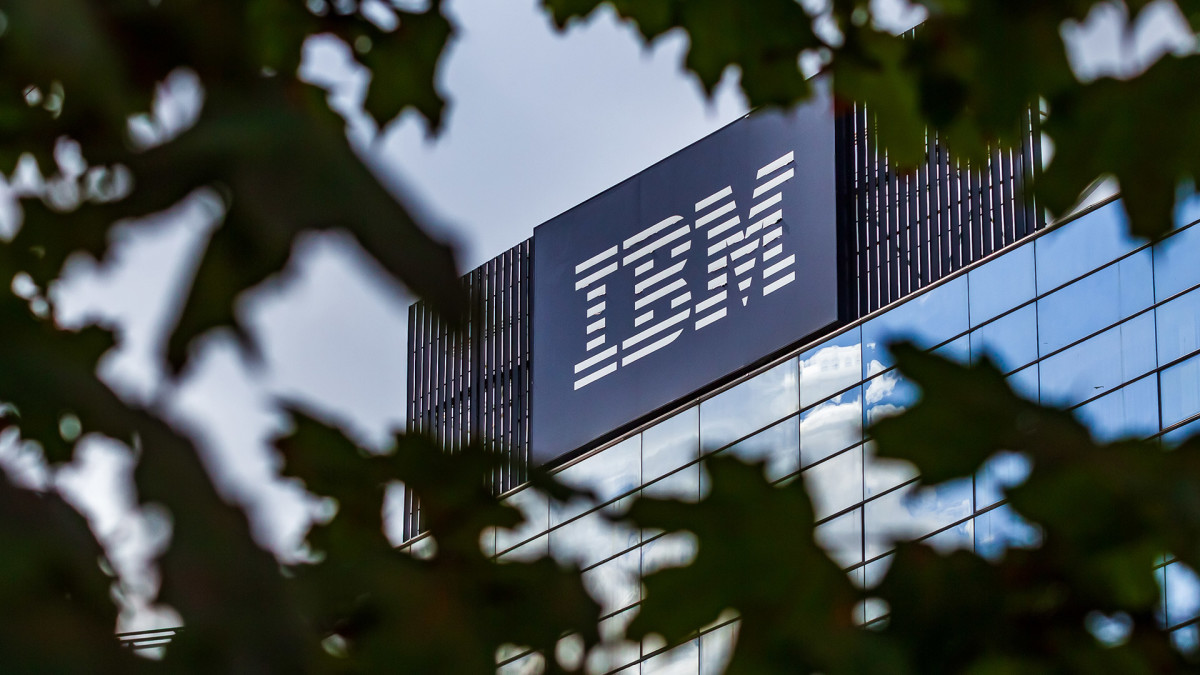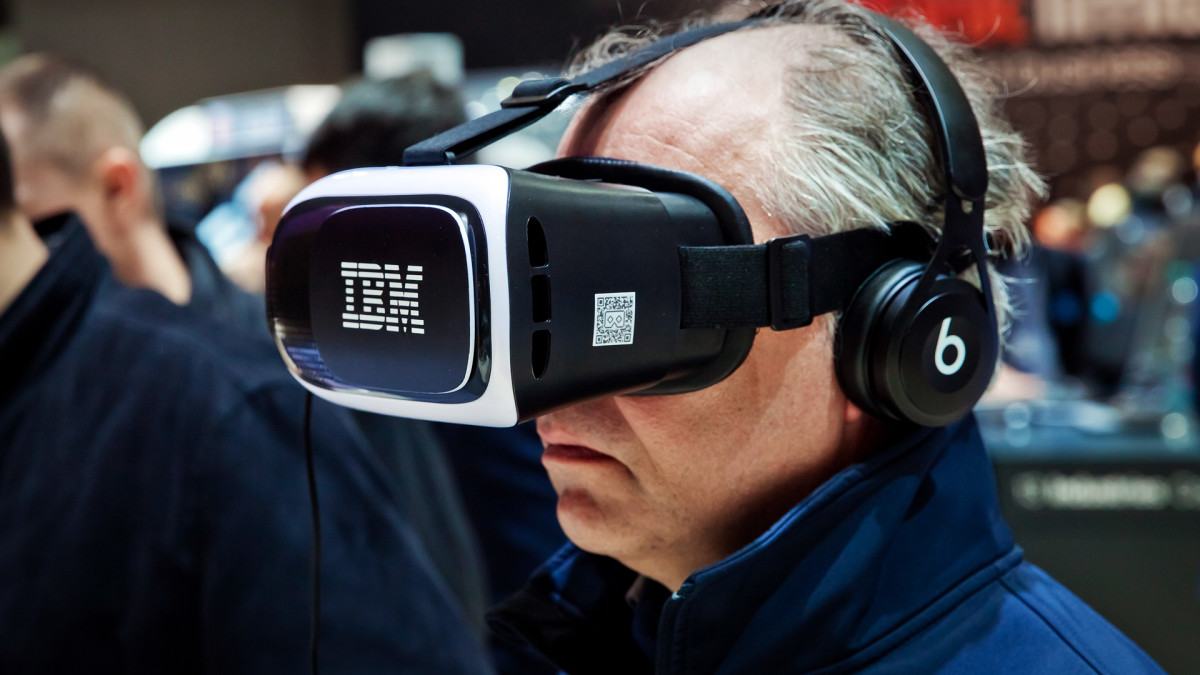
In 1911, Thomas Watson Sr. had one word for his colleagues at National Cash Register Co.: Think.
“The trouble with every one of us is that we don’t think enough,” he said.
“We don’t get paid for working with our feet — we get paid for working with our heads. Knowledge is the result of thought, and thought is the keynote of success in this business or any business.”
Related: Analyst delivers startling Apple warning amid Google antitrust case
Whereupon he wrote five capital letters on a blackboard: T-H-I-N-K.
Watson took his one-word philosophy to Computing-Tabulating-Recording Co. Hired as general manger in 1914, he was made president 11 months later, and in 1924 he renamed the company International Business Machines, or IBM (IBM) .
💰💸 Don’t miss the move: SIGN UP for TheStreet’s FREE Daily newsletter 💰💸
"THINK” signs adorned the desks and walls of countless IBM offices, according to the company’s website. IBM published an employee magazine called THINK, and many workers carried pocket-sized notebooks with “THINK” embossed on the cover.
IBM has given the world a lot to think about over the years.
The company was the leading manufacturer of punch-card tabulating systems and the IBM mainframe was the world's dominant computing platform in the 1960s and 1970s, producing 80% of computers in the U.S. and 70% of computers worldwide.

Shutterstock
IBM CEO cites 'hybrid cloud and AI strategy'
Time moved on, the tech world changed drastically, and by 2020, when Arvind Krishna was named CEO, Big Blue's market capitalization had fallen to less than $100 billion, about a tenth the value of Microsoft (MSFT) and Amazon (AMZN) , CNBC reported at the time.
Krishna, who started with IBM in 1990, was a principal architect of the company's $34 billion acquisition of software maker Red Hat in 2018.
Related: Nvidia stock hits record high as key AI player smashes Q3 earnings
“Arvind is the right CEO for the next era at IBM,” outgoing CEO Virginia Rometty said in a statement.
“IBM has such talented people and technology that we can bring together to help our clients solve their toughest problems,” Krishna said. “I am looking forward to working with IBMers, Red Hatters and clients around the world at this unique time of fast-paced change in the IT industry.”
IBM's market cap is currently $214.3 billion. Its shares are up 42% year-to-date and up 67% from a year ago.
In July IBM reported adjusted second-quarter net income of $2.43 per share, which beat analysts’ forecasts of $2.20 per share.
Revenue increased 1.9% to $15.8 billion and surpassed Wall Street’s call for $15.6 billion.
"We delivered a strong quarter, exceeding our expectations, driven by solid revenue growth, profitability, and cash-flow generation," Krishna said during the company's earnings call.
"We had strong performance in software and infrastructure above our model as investment in innovation is yielding organic growth, while consulting remained below model."
"Our results underscore the continued success of our hybrid cloud and AI strategy and the strength of our diversified business," he added.
Turning to the macroeconomic environment, Krishna said that technology spending remained robust "as it continues to serve as a key competitive advantage, allowing businesses to scale, drive efficiencies and fuel growth."
"As we stated last quarter, factors such as interest rates and inflation impacted timing of decision making and discretionary spend in consulting," he said.
"Overall, we remain confident in the positive macro outlook for technology spending, but acknowledge this impact."
Analyst: Red Hat slowing is potential risk
Last year, IBM introduced Watsonx, its commercial generative-artificial-intelligence and scientific data platform, which like the Watson computer system is named after Thomas Watson Sr.
IBM is scheduled to report third-quarter earnings on Oct. 23 and investment firms have been reevaluating their price targets for the company's shares .
More AI Stocks:
- Analysts update Meta stock price target with Q3 earnings in focus
- Veteran trader who called Palantir rally unveils new price target
- Open AI is burning cash (and losing billions!)
Morgan Stanley raised the firm's price target on IBM to $217 from $182 and affirmed an equal weight rating on the shares, according to The Fly.
The investment firm said that its new $217 target implied 7% downside, but it expects IBM to trade between its base and bull cases in the near term, as Q3 results and Q4 guidance are "likely to meet or slightly beat" Wall Street estimates.
Morgan Stanley, which doesn't see much that is likely to derail IBM's momentum in the Q3 earnings, says Red Hat decelerating is the potential risk in the third quarter.
Stifel raised its price target on IBM to $246 from $205 while maintaining a buy rating on the shares.
The firm said that the third quarter is seasonally weak and that "modest" EPS outperformance is more likely than revenue.
The setup for 2025 remains positive, and the stock remains a solid defensive growth name with a 2.9% dividend yield, though it feels a little extended going into report and is more interesting on the weakness, Stifel said.
Related: Nvidia's biggest problem might be about to get even worse
Earlier this month, RBC Capital raised the investment firm's price target on IBM to $250 from $211 and reiterated an outperform rating on the shares ahead of the earnings report
Sentiment has improved throughout the quarter, and the firm said that it continued to see increasing thematic inbounds in addition to free cash flow support.
RBC said that it continued to look for greater software traction, particularly from Red Hat, which the management expects to reaccelerate in the second half of the year. The first-half strength was driven largely by better-than-expected infrastructure performance late in the refresh cycle and generative AI supporting consulting.
Related: Veteran fund manager sees world of pain coming for stocks







